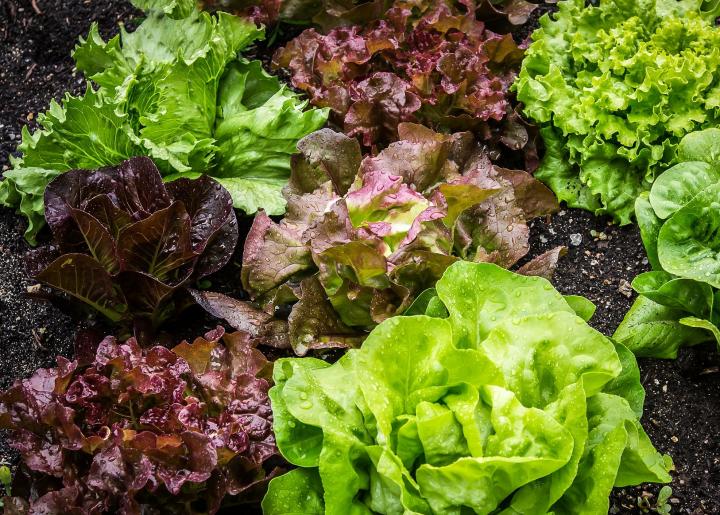Growing Your Own
"The odds are better there won't be any contamination from the things we grow ourselves, but no fresh foods are safe."
"Gardening and cooking are a food safety continuum. Safety must be considered with every step in the process, from pre-planting to placing meals on the table."
"Did the previous [home] owner have a lawn there that could have been exposed to lots of chemicals? Was there any run-off from roads or driveways? Was it a place where people walked their dogs? Those questions also apply to community gardens."
"Cooking is a highly effective step in destroying bacteria that might be there."
Jeanne Brandt, family, community health specialist, Oregon State University Extension
"Composted or aged manure or other soil amendments containing any animal components such as manure, meat, egg shells or bones are not recommended for gardens as they may not be thoroughly processed and thus contain food-borne pathologies."
"Washed produce should be dried before storage. Berries, broccoli and similar should be washed only prior to serving, to avoid mould development."
"Drip irrigation is the safest way to apply the irrigation water because there is no direct contact with the edible portion of the produce."
"Always wash your hands before entering the garden or harvesting; after handling compost, plant debris or garbage; after touching a pet or farm animal; and after using the toilet."
Sanja Ilic, assistant professor, food-safety specialist, Ohio State University Extension
 |
| Pixabay |
So if you have the idea fixed in your mind that anything you can grow in the summer in your garden plot in your backyard, is guaranteed more quality nutrients and safety, it's an appealing one, but at the same time to ensure that no pathogens are present on the fruits and vegetables you bring to the table, with pride and anticipation of superior taste and quality, remember if you have an animal companion pet a hazard exists respecting that pet's waste products as it evacuates or urinates in proximity to your garden.
According to public health officials, not that much can be done to treat food-borne disorders, but if one is struck with food poisoning that arrived in your gut via fresh produce, stay well hydrated to replace lost fluids and electrolytes. And while you're recovering think about the evasive actions you may have neglected taking in the prevention of contamination while taking pride in growing your own garden vegetables.
Ironically, one of the reasons given by people who devote time, space and labour to growing their own is food safety. In some instances, they're fooling themselves. If we're to believe what statistics tell us, more food-borne illnesses are as likely to be caused by home-grown produce than they are by fresh foods that have been acquired through the usual channels of procurement such as supermarkets or summer farmers' markets.
According to surveys, home gardeners fail to understand that soil, compost, human and animal manure and water, innocent seeming though they may be, are potential sources of disease-causing bacteria with the possibility of contaminating produce. Generally, the focus goes elsewhere, according to Jeanne Brandt: "They were most concerned about chemical contamination". And identifying the right vegetable garden location is the first step in planning a home garden.

"You want to know what's been on that (planting space)", she cautions. Routines whose purpose is to keep garden spaces orderly, gardeners' hands and tools cleaned, are often bypassed by novice gardeners. In North America close to half of all food illness outbreaks have been caused by fresh produce; greens, lettuces, and row-crop vegetables eaten raw -- as in fresh salads -- represent the number one culprit placing children, the elderly and pregnant women at risk.
Risks of acquiring food-borne illnesses can be minimized however, by the adoption of some simple practices to prevent garden contamination, and in extension of that, the kitchen as well, where preparation takes place before table presentation. Compost prepared from grass clippings or plant trimmings, for example are good alternatives auguring for safe outcomes. City water, having been treated, is the safest to use. Ensuring that wildlife; poultry and pets are restricted from the garden area is paramount to preventing their ordure from contaminating garden soil.
Attention should be given to preventing cross-contamination from the use of dirty tools and even table surfaces when harvesting whole foods. Take care to ensure that railroad ties, corroded metal, pressure-treated lumber are never used in preparing raised beds for vegetable gardens. If using rainwater stored in barrels for irrigation, periodically clean the barrel with bleach.
 |
| The Old Farmer's Almanac |
Labels: Gardening, Health, Safety, Whole Food

0 Comments:
Post a Comment
<< Home